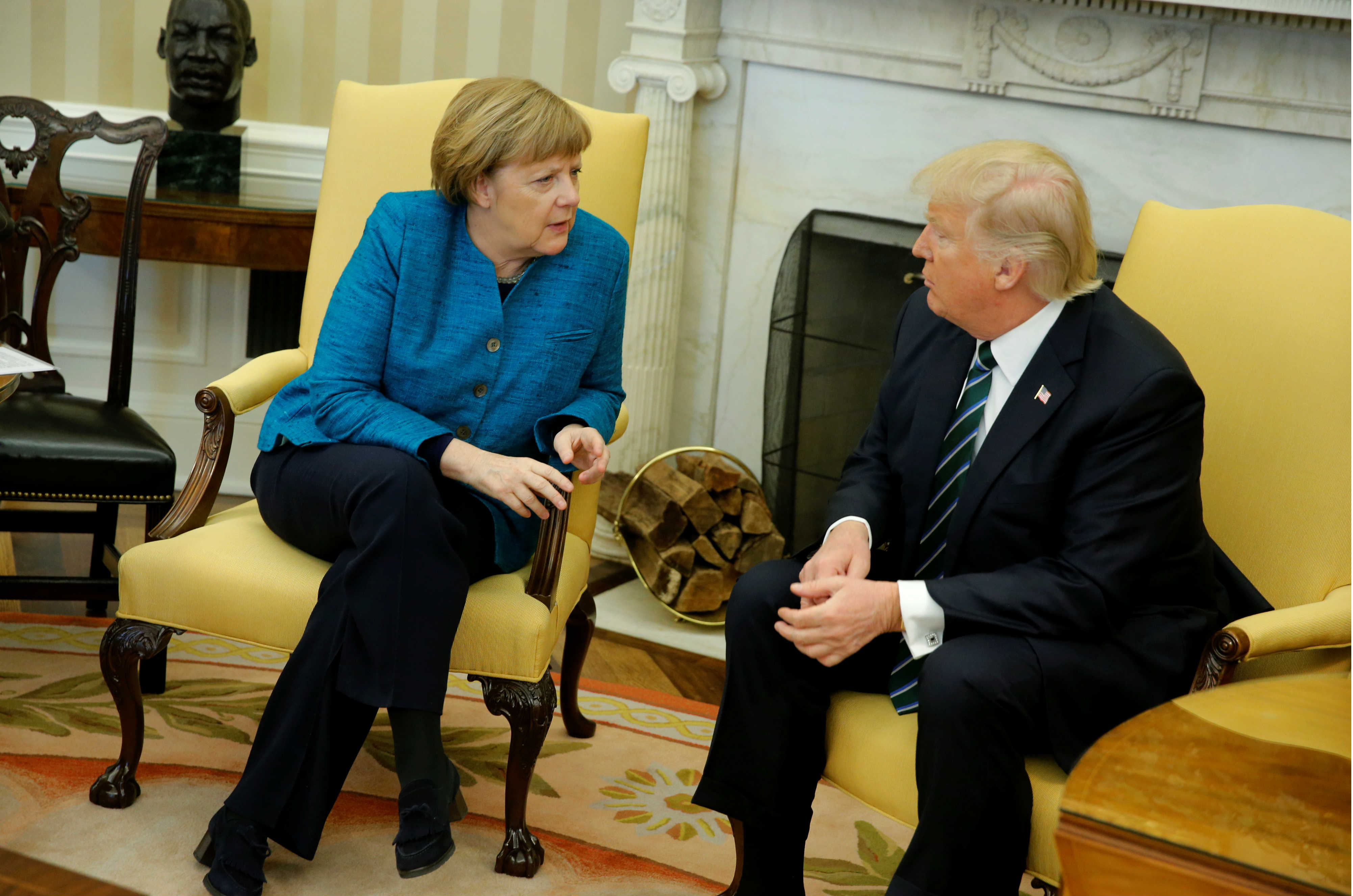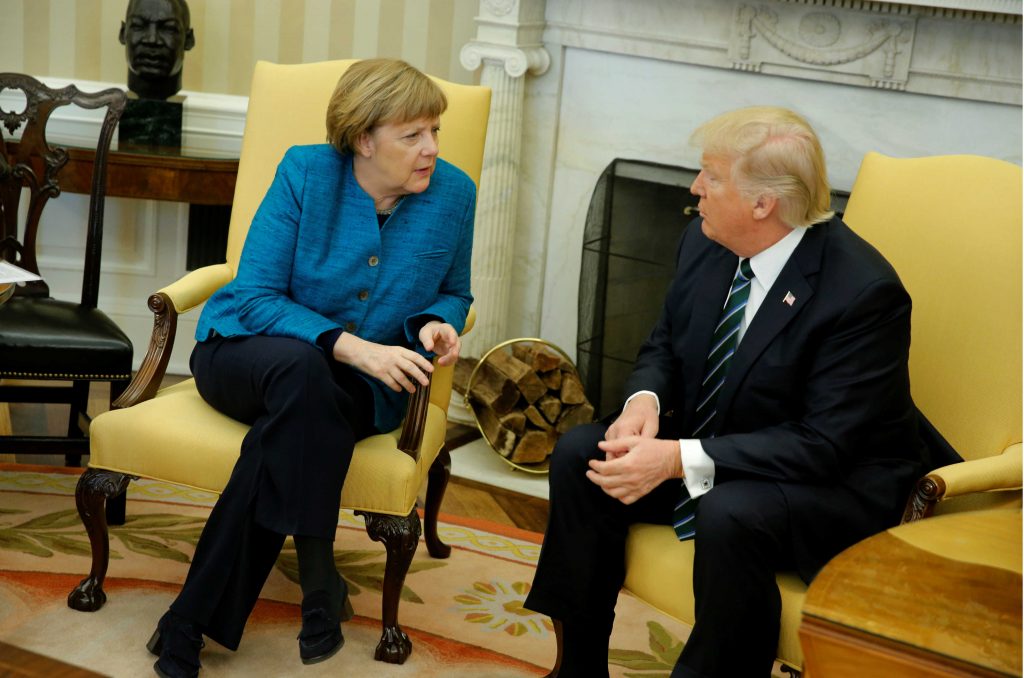 Two months into Donald Trump’s presidency, it is clear that Trump cannot control himself or his own administration. Sadly, this observation applies across the board in foreign policy. Trump first warmly greeted Taiwan, threatened a trade war with China, and then abruptly announced that he recognized the one China principle and Secretary of State Rex Tillerson essentially subscribed to China’s interpretation of the bilateral relationship while threatening war with North Korea. These episodes predictably led some to suggest that Beijing would regard him as a paper tiger or that, perhaps more accurately, Trump and his team have no idea what constitutes sound policy. When it comes to Mexico, his immigration policies, which are distinguished by a lack of policy coordination and respect for US laws, have provoked a furor in Mexico even though Trump’s own son-in law unsuccessfully tried to mediate the issue. On Israel, the White House excluded the State Department from discussions with Prime Minister Benjamin Netanyahu, then Trump blithely revoked fifty years of US policy by abandoning the two-state solution to Israel’s long-running problems with its Palestinian population. The next day Trump’s UN Ambassador Nikki Haley contradicted him, stating that the US still supports a two-state solution. On Iran, the administration has both attacked the Iran deal and supported it as the best available option of many bad alternatives. On February 20, Secretary of Defense James Mattis went to Iraq to reassure Iraqis that the United States, despite Trump’s stated desire to seize Iraqi oil, was not really serious about doing so.
Two months into Donald Trump’s presidency, it is clear that Trump cannot control himself or his own administration. Sadly, this observation applies across the board in foreign policy. Trump first warmly greeted Taiwan, threatened a trade war with China, and then abruptly announced that he recognized the one China principle and Secretary of State Rex Tillerson essentially subscribed to China’s interpretation of the bilateral relationship while threatening war with North Korea. These episodes predictably led some to suggest that Beijing would regard him as a paper tiger or that, perhaps more accurately, Trump and his team have no idea what constitutes sound policy. When it comes to Mexico, his immigration policies, which are distinguished by a lack of policy coordination and respect for US laws, have provoked a furor in Mexico even though Trump’s own son-in law unsuccessfully tried to mediate the issue. On Israel, the White House excluded the State Department from discussions with Prime Minister Benjamin Netanyahu, then Trump blithely revoked fifty years of US policy by abandoning the two-state solution to Israel’s long-running problems with its Palestinian population. The next day Trump’s UN Ambassador Nikki Haley contradicted him, stating that the US still supports a two-state solution. On Iran, the administration has both attacked the Iran deal and supported it as the best available option of many bad alternatives. On February 20, Secretary of Defense James Mattis went to Iraq to reassure Iraqis that the United States, despite Trump’s stated desire to seize Iraqi oil, was not really serious about doing so.
But the most serious and unsettling of these multiplying manifestations of dysfunctional policymaking have occurred with regard to European security. As Trump praised Russian President Vladimir Putin and advocated a deal with Russia, his administration remained silent about expanded Russian violence over the armistice lines in the Donbas or Putin’s announcement that Russia would recognize the passports and other “official” documents issued by the separatist governments of the Donetsk and Luhansk provinces. Yet officials said that sanctions would remain, that we can never trust Russia, and that it must return Crimea to Ukraine. However, at the same time, Trump’s private lawyer and some dodgy Ukrainian and Russian associates tried to deliver their own “peace plan” that allowed Russia to “rent” Crimea to Trump’s National Security Council (NSC), whose leader, former Lt. General Michael Flynn, was about to be sacked for lying about his contact with the Russian government.
There is no coherent policy on Europe or Russia. As key members of the administration stated their unwavering support for NATO at the Munich Security Conference and the preceding NATO Ministerial meetings, others announced that if allies did not reach spending targets of 2 percent of GDP, the United States would “moderate its commitment” to NATO. While Vice President Mike Pence praised the EU in Brussels and reinforced Washington’s desire for continued cooperation, Trump adviser and NSC member Steve Bannon attacked it in a meeting with the German ambassador as a flawed organization and stated the administration’s preference for bilateral trade deals. Later, in meetings with Chancellor Angela Merkel, Trump showed that he doesn’t understand how NATO works, and continued to press Germany on its trade balance with Washington and deprecated the EU. Most recently, Tillerson announced he would skip a NATO Ministerial meeting and go to Moscow instead.
While some of this incoherence may be attributed to inexperience and the lack of candidates in high-ranking policymaking positions, the overriding impression is one of amateurishness, astonishing ignorance, and congenital dysfunction in the White House. Indeed, the State Department, due to the inability to staff its higher echelons, has been virtually sidelined as an effective player in US foreign policymaking since Trump was inaugurated. European officials like Jean-Claude Juncker, the president of the European Commission, have urged Europe to reject Washington’s demand that Europe increase defense spending and Federica Mogherini, EU high representative for foreign and security affairs, has urged Europe to resist American interference in its affairs. Finally, the EU is studying ways to reject Trump’s nominee to be Washington’s Ambassador to the EU, Ted Malloch, in advance of his nomination.
While there will be no deal with Moscow, at least for now, it is by no means clear to what degree the US commitment to NATO will stand or how transatlantic trade issues will be resolved. Bannon, a self-described Leninist and partisan of the alternative right, has espoused the takeover of Europe by similarly minded right-wing populist parties even if they, like the National Front in France, have received money from the Kremlin. This stance puts a Trump confidante and member of the NSC at odds with Washington’s staunchest ally on the continent, Angela Merkel.
It’s impossible to predict what US policy toward Europe will be and equally difficult to say who will be the leading the policy. While we may hope that Mattis, Tillerson, and Lt. General H.R. McMaster will impart the virtues of consistency, coherence, and predictability, as well as a uniform approach to the many policy challenges involving US relations with Europe, we cannot count on that as long as the president continues his impromptu comments and powerful forces within the White House conduct their own “back-channel” policies. We have seen too many examples in European history of policymaking by such irresponsible figures like Nicholas II’s court camarilla to be reassured by the presence of strong-willed yet capable people in the cabinet or the White House as long as the government itself remains subject to extra-constitutional or unaccountable pressures and persons. Since nature abhors a vacuum, Europe, presumably led by Germany, must take greater responsibility for its future security. Sadly Jacques Chirac’s taunt in 1995 that the position of leader of the free world is vacant now applies.
Stephen Blank is a Senior Fellow at the American Foreign Policy Council.
Image: US President Donald Trump and Germany's Chancellor Angela Merkel wait for reporters to enter the room before their meeting in the Oval Office at the White House in Washington, March 17, 2017. REUTERS/Jonathan Ernst
